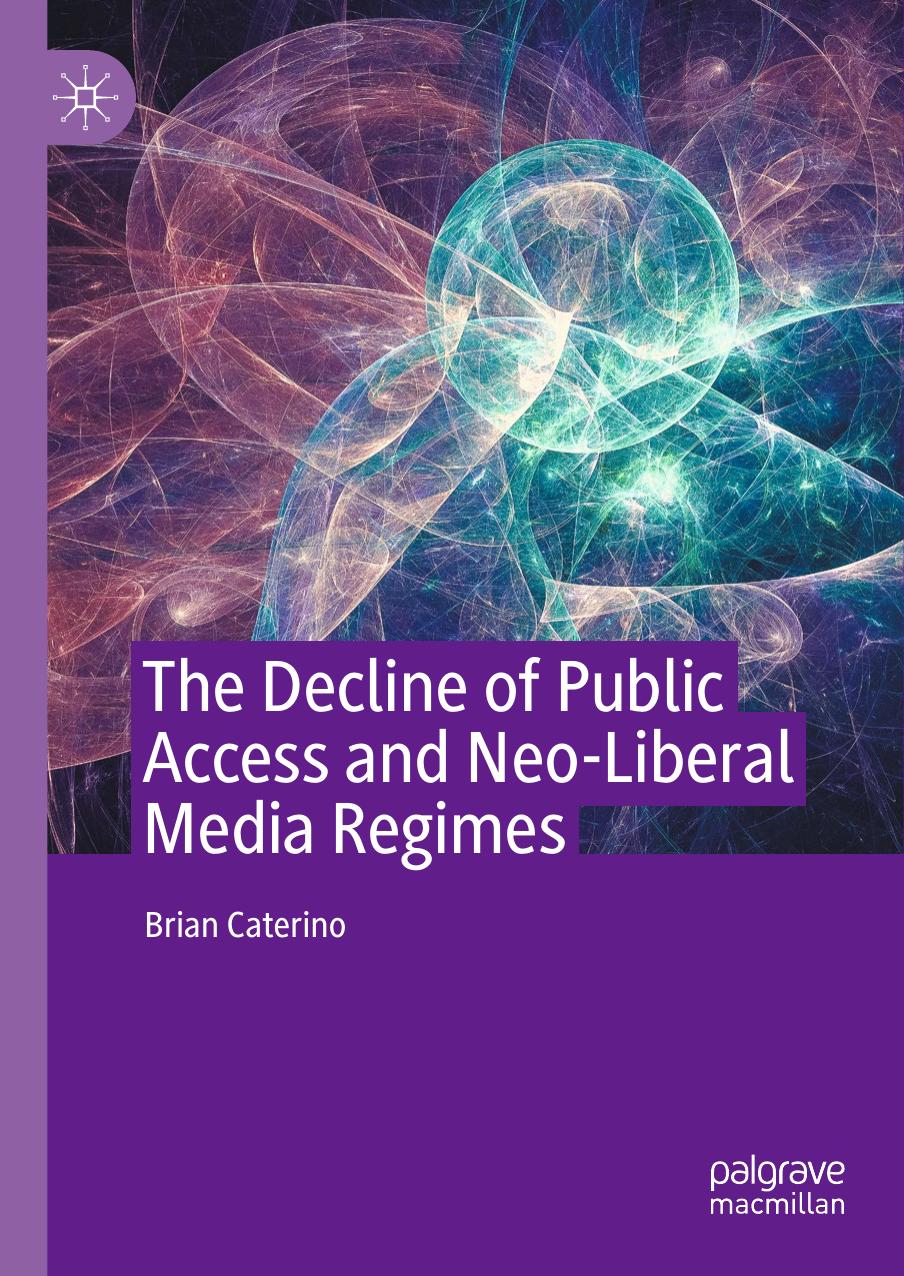The Decline of Public Access and Neo-Liberal Media Regimes by Brian Caterino

Author:Brian Caterino
Language: eng
Format: epub, pdf
ISBN: 9783030394035
Publisher: Springer International Publishing
ALEC and Cable Franchising
Lobbying groups like ALEC played a major role in establishing momentum for statewide franchises. ALEC, the American Legislative Exchange Council, chose the deregulation of broadcast media as one of its priority items. ALEC is largely a creation of the Koch brothers, who have a developed a conservative-libertarian agenda, and have been central in funding neoliberal foundations as documented by McLean, but ALEC is also closely related to cable companies like AT&T.38 The ALEC task force on telecommunications and information technology like other ALEC groups developed model legislation to reform cable franchising and streamline franchising. These model legislative bills became the template for statewide franchises and were then introduced in several states. They were only slightly modified, if at all. Like ALEC attacks on unions, education, environmental laws, and other areas such as consumer protection, these are not just pro-corporate; they reflect the highly ideological libertarian wing of the neoliberal movement. They are meant to limit the kind of freedoms that we need to create popular democratic movements.39 In addition to the Koch brothers, the ALEC communications and technology task force seems largely controlled by the big five telecom companies: AT&T, Verizon, Time Warner/Spectrum, Comcast, and CenturyLink.
In good neoliberal fashion, ALEC criticizes the archaic nature of cable franchising. Cable Companies must deal with up to 30,000 localities to establish nationwide cable services. Phone and internet providers like AT&T want easy access to municipalities to establish services. They claim that the growing completion in wireline services requires faster entry, and that relaxation of rules will lead to greater competition and, hence, lower prices, greater consumer choice, and smaller government.
ALEC believes that cable has no public obligations; it is simply a private enterprise whose expansion is being blocked by unwieldy policies. Nor is there much talk about the importance of localism in media. Where statewide franchises have established public access, outlets have declined. According to the American Community Television (ACT), funding for PEG channels has been eliminated in Arkansas, Florida, Georgia, Idaho, Iowa, Kansas, Missouri, Nevada, Ohio, South Carolina, and Wisconsin. ACT estimates that as many as 500 PEG channels in these states are at risk of being shut down.40
The omission of public access from the ALEC legislation is no accident. Short of a revision to the Communications Act, however, they have not been able to remove the stipulation that public access channels can be funded. They can attack, however, the franchise fees on which access is based. In addition to its attack on franchises, ALEC has also opposed public broadband services and has sponsored legislation to eliminate the public right of way considerations that would take cable services out of the category of a service regulated by the FCC .
Download
The Decline of Public Access and Neo-Liberal Media Regimes by Brian Caterino.pdf
This site does not store any files on its server. We only index and link to content provided by other sites. Please contact the content providers to delete copyright contents if any and email us, we'll remove relevant links or contents immediately.
The Secret History by Donna Tartt(16625)
The Social Justice Warrior Handbook by Lisa De Pasquale(11489)
Thirteen Reasons Why by Jay Asher(7788)
This Is How You Lose Her by Junot Diaz(5773)
Weapons of Math Destruction by Cathy O'Neil(5037)
Zero to One by Peter Thiel(4824)
The Myth of the Strong Leader by Archie Brown(4789)
Promise Me, Dad by Joe Biden(4447)
Beartown by Fredrik Backman(4419)
Stone's Rules by Roger Stone(4416)
How Democracies Die by Steven Levitsky & Daniel Ziblatt(4399)
The Fire Next Time by James Baldwin(4343)
100 Deadly Skills by Clint Emerson(4079)
A Higher Loyalty: Truth, Lies, and Leadership by James Comey(4033)
Rise and Kill First by Ronen Bergman(4012)
The David Icke Guide to the Global Conspiracy (and how to end it) by David Icke(3883)
The Farm by Tom Rob Smith(3872)
Secrecy World by Jake Bernstein(3783)
The Doomsday Machine by Daniel Ellsberg(3731)
